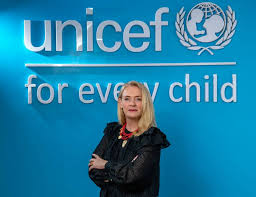Daud Olatunji
When Doris Akhere was told by her mother that she had been mutilated just eight days after birth, she was left speechless. The revelation came years later, but its scars—both physical and emotional—remain fresh.
“I was hospitalised for three months because of bleeding,” Akhere recounted, her voice breaking.
“I didn’t even know I had been cut until I was 15, during a biology class, when the diagram of female organs didn’t look like mine. That was when I realised what had been taken away from me.”
Akhere is one of millions of Nigerian women whose lives have been shaped by the harmful practice of Female Genital Mutilation (FGM).
PLATFORM TIMES gathered that despite being outlawed in Nigeria, UNICEF estimates that nearly 20 million women and girls in the country have undergone FGM, giving Nigeria the third-highest prevalence globally, after India and Bangladesh.
PLATFORM TIMES reports that the practice—often carried out in infancy or childhood—leaves more than just physical pain. It robs women of their dignity, complicates marriages, and reinforces harmful myths that continue to circulate in Nigerian communities.
… ‘I Cut My Own Daughter’
At a two-day media dialogue in Benin, organised by the Oyo State Ministry of Information and Orientation in collaboration with UNICEF, survivors, former practitioners, and advocates laid bare their experiences.
For some, like Grace Ogar, the story is one of regrets.
“I inherited the practice from my grandmother and became a cutter myself,” she admitted.
“I have lost count of how many girls I mutilated, even though each time, it was heavy bleeding, sharp pain, and unsterilised blades. My past relationships failed because I couldn’t connect emotionally. I fear marriage now.”
Her words echo those of Bridget Omogbode, another former practitioner who confessed to cutting even her own daughter.
“That decision strained our relationship,” she said. “For more than three decades, I practised it, but now I use the same energy to campaign against it.”
… Mothers Caught In Cycles Of Ignorance
For Rachael Odion, 56, ignorance shaped her family’s reality. “Three of my five daughters were mutilated because I didn’t know the dangers,” she lamented.
“They constantly complained of itching and infections. If I knew then what I know now, I would never have allowed it.”
Another mother of six, who pleaded anonymity to protect her daughters, narrated how poverty unintentionally saved her two youngest girls.
“I had already circumcised my first three daughters. When I had my fifth, there was no money to pay. Later, I tried again, but the money my husband gave me wasn’t enough—N12,000 each was demanded. Before I could raise it, a female chemist introduced me to an FGM advocacy programme. That was when my eyes opened,” she said.
She admitted she once planned to “go back” to complete the circumcisions, believing the myth that an uncircumcised girl would never stay with one husband. “Today, I’m an advocate. I tell mothers: don’t do this to your children. It destroys lives.”
… The silence In marriages
For many survivors, the most haunting toll is on intimacy.
One survivor, who asked not to be named, described the experience as “traumatizing.” “FGM destroyed my ability to enjoy intimacy. It left me numb. Parents who still do this should be arrested,” she said.
Patience, another survivor, wept as she narrated how mutilation ruined her marriage. “I regret cutting three of my five daughters. If not for financial strain, I would have continued with the remaining two. I lived in ignorance,” she admitted.
… Cleric, UNICEF, Govt. Join The Call
A religious leader also lending his voice. Pastor Ken Izah of the Ark of Refuge Christian Center in Benin declared: “FGM has no basis in the Bible. In Genesis 17:23, God commanded Abraham to circumcise males, not females. FGM has no place in God’s plan—it is despicable and must end.”
UNICEF’s Chief of Lagos Field Office, Celine Lafoucriere, stressed that FGM is not just a cultural practice but a violation of human rights.
“Nearly 20 million women and girls in Nigeria have been cut. This is a huge number we cannot be blind or deaf to,” she warned.
“Despite being outlawed, FGM persists because of myths and traditions. No culture should compromise girls’ health or future. The good news is, change is happening through collaborations with the government, survivors, and communities.”
UNICEF Communication officer, Blessing Ejiofor, added: “No woman should undergo FGM—it is now a criminal offence in Nigeria. The media must drive the advocacy so that no girl suffers again.”
From the government side, Mr. Rotimi Babalola, Permanent Secretary of the Oyo State Ministry of Information, reaffirmed the state’s commitment.
“We have done similar advocacy programmes with security agencies and the judiciary. It’s now the turn of the media. We must redouble our efforts to totally eliminate FGM,” he said.
… Breaking The Cycle
While statistics remain grim, survivors’ voices are changing narratives at the grassroots.
Communities that once defended the practice are beginning to question it. Campaigns are slowly shifting perceptions from tradition to protection of girls’ rights.
As Lafoucriere put it: “Every girl in Nigeria deserves to grow up free of mutilation, free of fear, and free to thrive.”
For Akhere, Ogar, Odion, Patience, and countless others, the pain will never fully fade. But their voices, once silenced by culture, are now their loudest weapons against a practice they hope will end with their generation.
Do you want to share a story with us? Do you want to advertise with us? Do you need publicity for a product, service, or event? Contact us on WhatsApp +2348183319097 Email: platformtimes@gmail.com
We are committed to impactful investigative journalism for human interest and social justice. Your donation will help us tell more stories. Kindly donate any amount HERE




